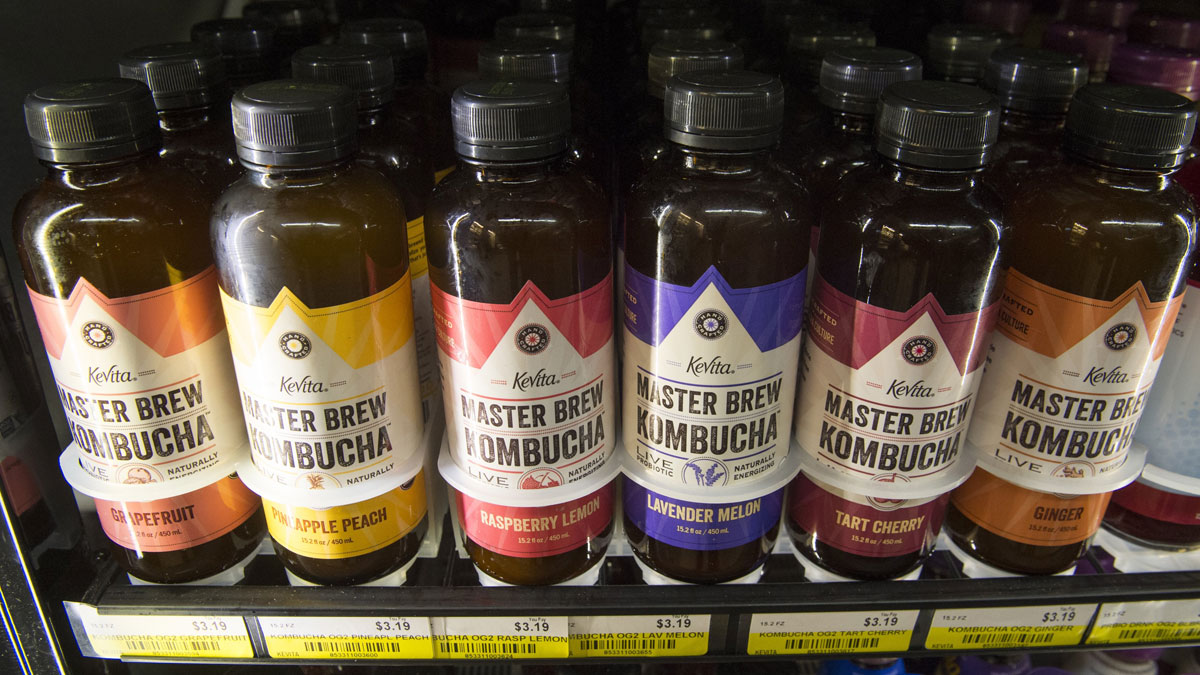How bacteria from tea could help colonise Mars
Scientists say they can make 'wonder material' that could create livable conditions in space

A free daily email with the biggest news stories of the day – and the best features from TheWeek.com
You are now subscribed
Your newsletter sign-up was successful
Students and scientists at Imperial College London have found a way to modify the bacteria found in Kombucha tea to one day help humans to colonise Mars.
The new method gives researchers the ability to manufacture a "wonder material" called bacterial cellulose on demand, explains the Daily Telegraph.
Bacterial cellulose is currently harvested and used in a range of products, including materials for headphones, ingredients in cosmetics and occasionally as a leather substitute in clothes.
The Week
Escape your echo chamber. Get the facts behind the news, plus analysis from multiple perspectives.

Sign up for The Week's Free Newsletters
From our morning news briefing to a weekly Good News Newsletter, get the best of The Week delivered directly to your inbox.
From our morning news briefing to a weekly Good News Newsletter, get the best of The Week delivered directly to your inbox.
But scientists have now developed the DNA tools to control and shape a strain of the bacteria found in Kombucha tea.
The ability to grow and shape the cellulose means astronauts could potentially develop the material to start building components of human colonies on other planets once they arrive, rather than transporting ready-made materials with them, says the Telegraph.
The technique could also be used to develop fabric with in-built sensors that could change colour as it detects toxins, says the Imperial College team.
"Bacterial cellulose is a remarkable material that is malleable, safe and strong. We believe the tools developed by the students will take manufacturing of this product into the 21st century," said study co-author Dr Tom Ellis, who works at the department of bioengineering.
A free daily email with the biggest news stories of the day – and the best features from TheWeek.com
In the research, published in the journal Proceedings of the National Academy of Sciences, the team says the next step would be to work with Nasa to understand how best to develop the material in large quantities.
"The real big achievement here is that this was a project from a team of undergraduates that has now become a major research paper," Dr Ellis added.
-
 Local elections 2026: where are they and who is expected to win?
Local elections 2026: where are they and who is expected to win?The Explainer Labour is braced for heavy losses and U-turn on postponing some council elections hasn’t helped the party’s prospects
-
 6 of the world’s most accessible destinations
6 of the world’s most accessible destinationsThe Week Recommends Experience all of Berlin, Singapore and Sydney
-
 How the FCC’s ‘equal time’ rule works
How the FCC’s ‘equal time’ rule worksIn the Spotlight The law is at the heart of the Colbert-CBS conflict
-
 Epstein files topple law CEO, roil UK government
Epstein files topple law CEO, roil UK governmentSpeed Read Peter Mandelson, Britain’s former ambassador to the US, is caught up in the scandal
-
 Iran and US prepare to meet after skirmishes
Iran and US prepare to meet after skirmishesSpeed Read The incident comes amid heightened tensions in the Middle East
-
 Israel retrieves final hostage’s body from Gaza
Israel retrieves final hostage’s body from GazaSpeed Read The 24-year-old police officer was killed during the initial Hamas attack
-
 China’s Xi targets top general in growing purge
China’s Xi targets top general in growing purgeSpeed Read Zhang Youxia is being investigated over ‘grave violations’ of the law
-
 Panama and Canada are negotiating over a crucial copper mine
Panama and Canada are negotiating over a crucial copper mineIn the Spotlight Panama is set to make a final decision on the mine this summer
-
 Why Greenland’s natural resources are nearly impossible to mine
Why Greenland’s natural resources are nearly impossible to mineThe Explainer The country’s natural landscape makes the task extremely difficult
-
 Iran cuts internet as protests escalate
Iran cuts internet as protests escalateSpeed Reada Government buildings across the country have been set on fire
-
 US nabs ‘shadow’ tanker claimed by Russia
US nabs ‘shadow’ tanker claimed by RussiaSpeed Read The ship was one of two vessels seized by the US military